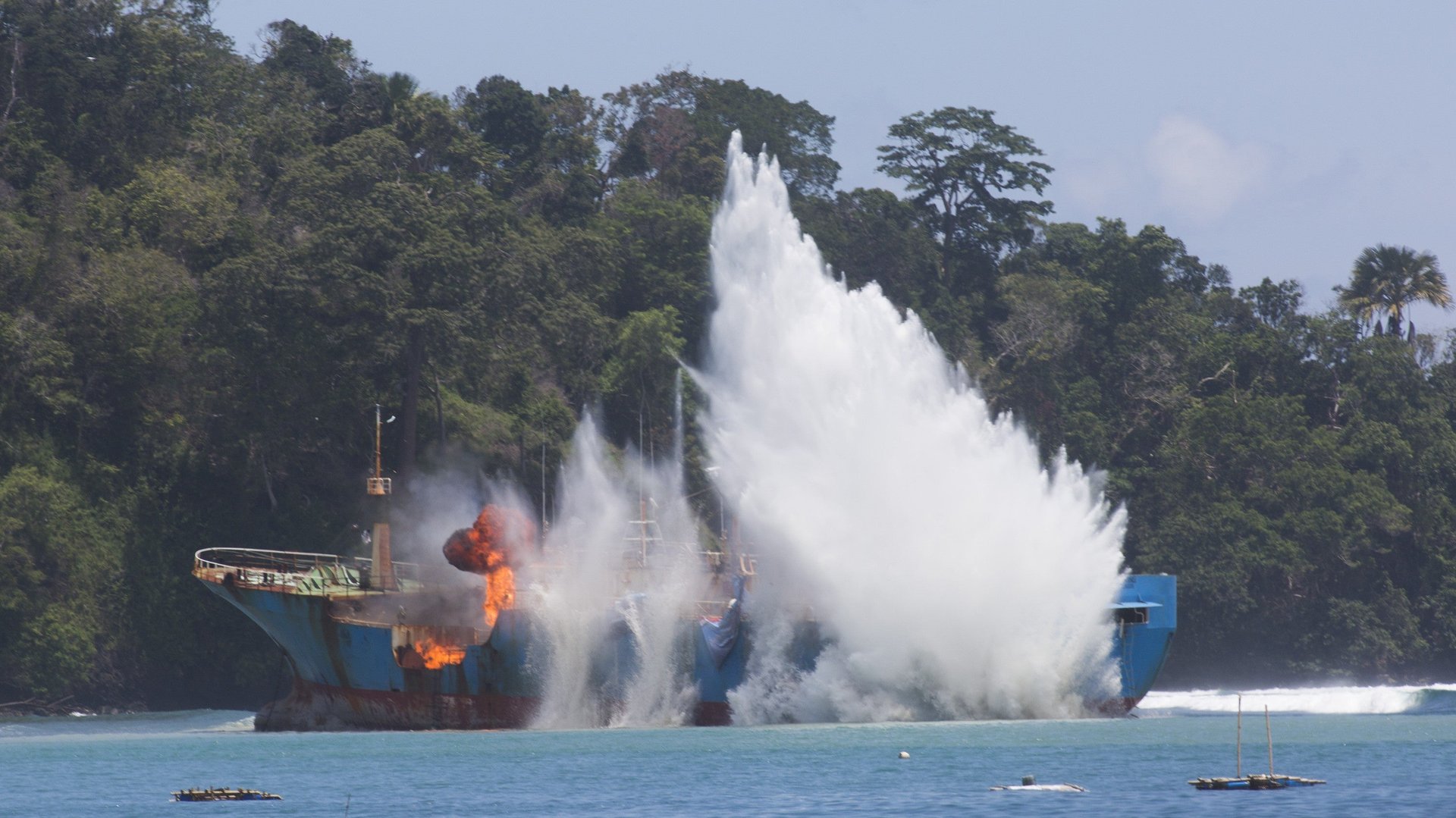An illegal fishing vessel wanted by 13 nations has finally been destroyed by Indonesia
Indonesia destroyed a poaching ship wanted around the world yesterday (March 14). The Viking, a stateless “ghost ship,” had over the years repeatedly changed names and flags, avoided using any type of signal-broadcasting equipment that could make it trackable, and landed on Interpol’s purple-notice list for illegal fishing.


Indonesia destroyed a poaching ship wanted around the world yesterday (March 14). The Viking, a stateless “ghost ship,” had over the years repeatedly changed names and flags, avoided using any type of signal-broadcasting equipment that could make it trackable, and landed on Interpol’s purple-notice list for illegal fishing.
In a late February raid involving a helicopter and warship, the Indonesian Navy arrested at least 11 crew members for fisheries crimes and seized the vessel—which was using the name the Viking and flying a Nigerian flag at the time—in waters south of Singapore in the Riau Islands province.
Sea Shepherd, a nonprofit ocean conservation group, was among those who alerted Indonesian officials when the ship entered the nation’s waters. It recently posted a video with drone footage of the ship being destroyed in waters off Pangandaran Beach, a popular tourist spot on the southern coast of West Java.
For Indonesia, which has been waging a war on illegal fishing since 2014 and aspires to be a maritime power, the capture of the infamous Viking was a point of pride. President Joko Widodo tweeted about it, noting that while 13 countries had been hunting for the Viking, Indonesia managed to catch it:
He also tweeted that the ship would be sunk half-body as a monument against illegal fishing.
The Viking was part of a group of a half dozen vessels that Sea Shepherd dubbed the “Bandit 6.” Sea Shepherd is better known for taking on whaling vessels with sometimes confrontational—and controversial—techniques.
The whalers basically took the season off in 2014/15 because in March of 2014 the International Court of Justice ordered a halt to the hunting of whales in the Southern Ocean. That meant Sea Shepherd needed something else to do, which it turned out, was bad news for the Bandit 6. (The whalers and their pursuers resumed the hunt this season.)
The Bandit 6 were involved in illegally fishing for vulnerable Antarctic and Patagonian toothfish (also known as Chilean sea bass in some places). The rogue ships flouted the rules established for fishing in the Southern Ocean set by the Commission for the Conservation of Antarctic Marine Living Resources. Sea Shepherd launched “Operation Icefish” against them in 2014, its “first campaign to target illegal, unreported, unregulated fishing in the Southern Ocean.”
It took about 15 months, but all six ships were taken out of commission, in what the nonprofit is dubbing “one of the biggest successes in marine conservation history.” The group followed the ships, collected evidence against them, and alerted authorities to their whereabouts and activities. Ships were seized by authorities in Senegal, Malaysia, parts of the west Africa coast, and, finally, Indonesia.
The Viking was the last of the Bandit 6 to be taken out.